Contextualize Your Entire Site to a User’s Selected Location
And do so without needing to create lots of extra pages (or even a new website).
At Mission Lab, we leverage human-centered design to identify and solve the needs of users (including staff and leadership).
Your individual locations and the people they serve are not identical. Why does your website pretend otherwise?
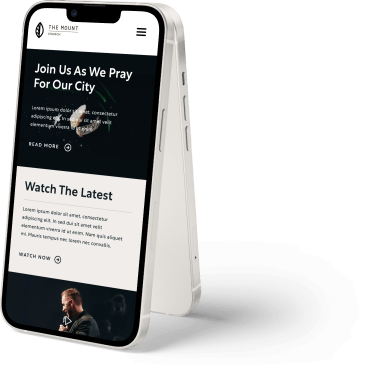
That is why when a user selects a location, we believe the entire site should transform from a general view to one that is contextualized to that location. The trick was designing our solution in a way that minimized the need to create new pages.
Options to Fit Your Need & Budget
Create a Brand New Custom Website
We design and develop a custom website tailored to your organization's needs and goals. By focusing on brand, user experience, aesthetic appeal, and functionality you'll get a website that truly supports your mission.
Come Along Side a Work In Progress
We are regularly tapped by other agencies to do specialized technical work, and would be glad to collaborate with your existing project team to add in contextualization capabilities.
Breath Life Into Your Existing Site
The reality is that many companies would like a new website but don't have the budget. We totally get that. If your existing website is built on WordPress, we can add the location contextualization for a fraction of what a new site would cost.
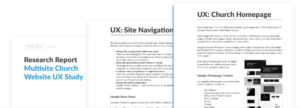 We're not just practitioners, we're also scholars. We've conducted an exhaustive study of best practices for multi-location websites, and we apply these insights to every project. This study focuses on multi-location church websites, but has valuable insights for all industries!
We're not just practitioners, we're also scholars. We've conducted an exhaustive study of best practices for multi-location websites, and we apply these insights to every project. This study focuses on multi-location church websites, but has valuable insights for all industries!
How Contextualization Works
Auto Filters Make Shared Pages Unique
When a location is selected, a location filter is automatically added to modules and lists, so that only content (e.g. events, staff, products, services, etc) that are relevant to that location show. This creates unique experiences, even when the page itself is shared.
Global Pages Keep things Simple
Although you could technically create lots of unique versions of a page for each location, we advise against the content monster this will create. For use cases where a page or post is relevant to the general site and all locations, it can be set to global. Any filterable modules like events will altered when location is selected, but this single post/page ID stands in for all versions of the page.
Flexible Rules for Shared Pages
We offer sharing rules when you don't want to display the same version of a page on the general site and all locations. You can choose which locations share a version, which use a different one, or don't have it at all. For instance, you could create a global static page with general content and use a single dynamic page you share across all locations. This then shows the relevant events, programs, staff, etc., specific to each.
Shared URL Slugs & Dynamic URLs
When you have multiple versions of a page, they will share the same url slug (e.g. /programs/) but depending on what location is selected will depends on which version of the page is displayed. Links within a page are also designed to automatically inherit the location in the URL by default so you don't have to worry about this.
Easily Move Between Locations
The reality is that the closest location isn't always the best location. That is why we make it easy for visitors to view the locations near them, while also adding the a location selector directly on key pages. This lets users move laterally through different location's versions of the same page.
SEO & Automated Canonical Tags
Since each location's version of a page has a unique URL, when the same version of a page is shared with multiple locations, search engines want to know which version(s) to index and which to treat as duplicates. This is done using canonical tags, and we handle this automatically in these use cases. When you have unique versions of a page they remain indexable by search engines unless you specify otherwise.
Proudly Serving Mission-Driven Organizations Like Yours











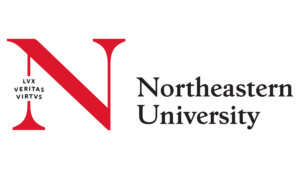



Process
Our process is designed to ensure your website truly serves your church's mission. We start with a thorough discovery process to understand your needs and goals. Then, we create a custom design and develop your website, with optional add-ons available to meet your specific needs.
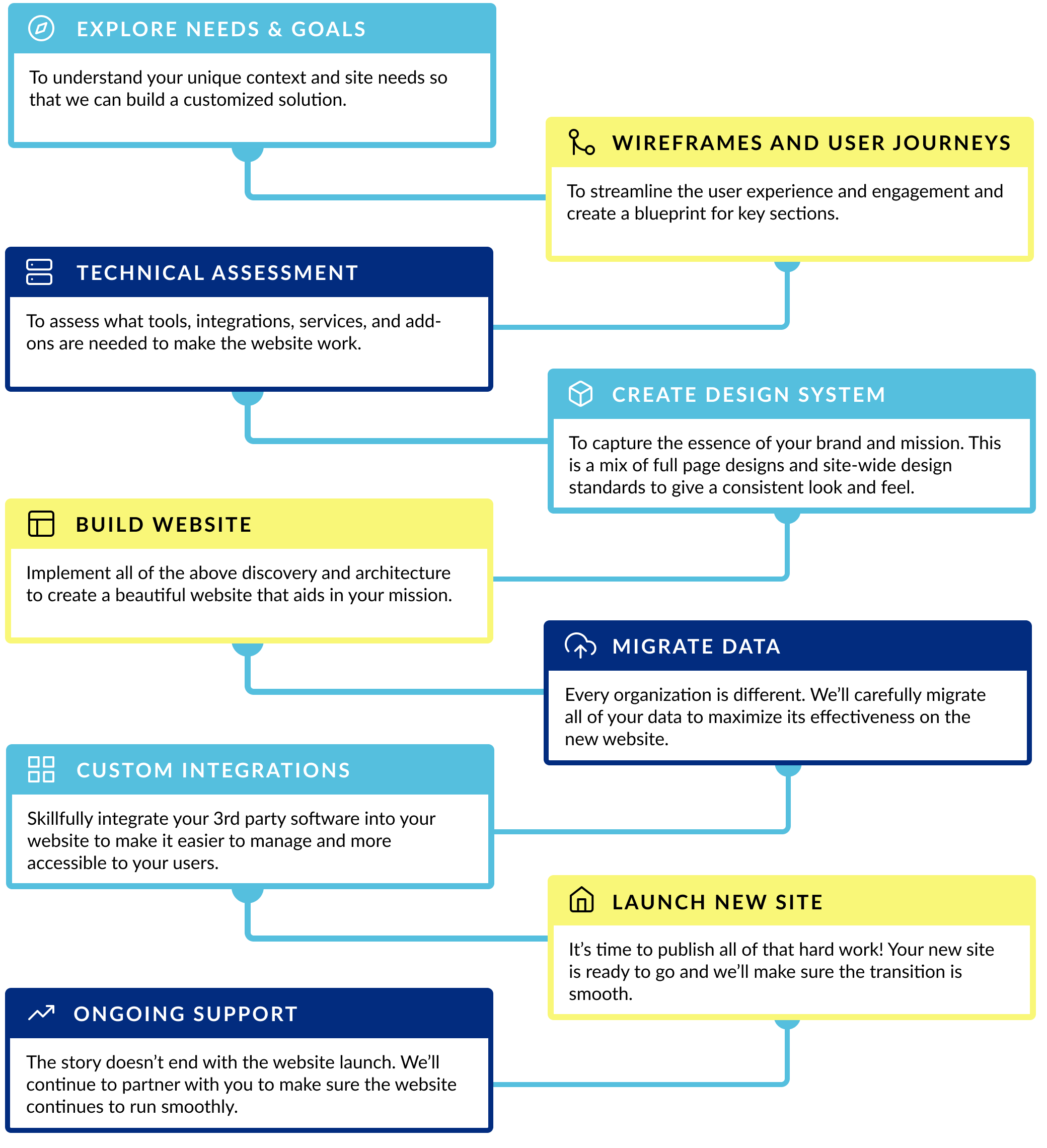
Ready to amplify your organizations mission and reach?
We are so excited to work with you to help your website have a bigger impact on your organization and customers. Let's get started!
See how we helped North Way increase their online engagement with a user-first design. Our context-switching approach allowed us to create a beautiful, user-friendly website that helps North Way manage content across several campuses while helping visitors easily navigate
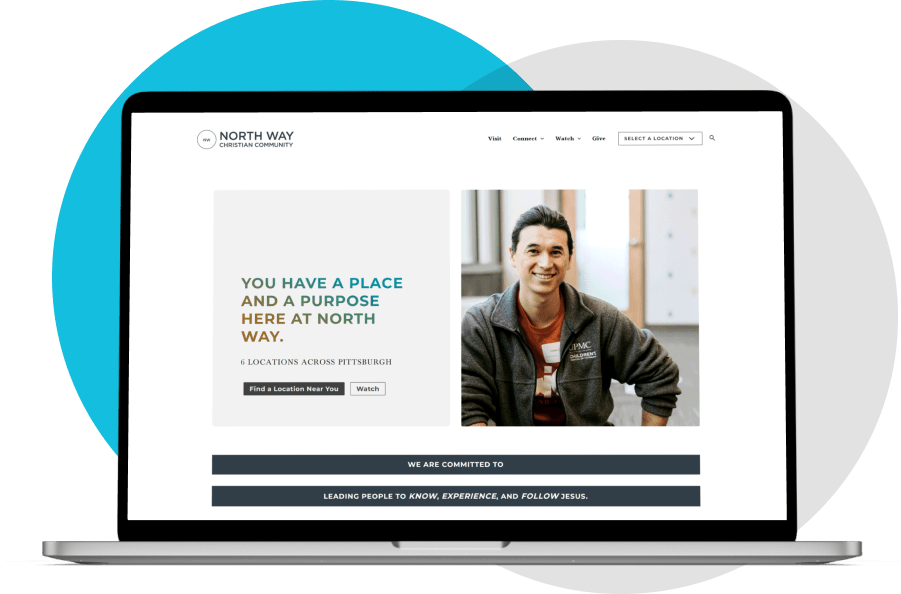
Why Choose Mission Lab?
Because we're more than just a web design agency. We're your partners in digital transformation. But don't just take our word for it. Here's what one of our clients has to say:

Mission Lab helped us navigate some complex website challenges. Tanner and his team were professional, engaged, and knowledgeable. It’s a pleasure to partner with them on projects.

I’m really glad I reached out to MissionLab. They’ve been phenomenal at introducing new features that I never would have thought of. They’ve also improved security and reduced our hosting costs so we now have a faster, more secure site for less money. I highly recommend Mission Lab, especially for membership websites.

The journey to create our new website was horrible until we found you guys. You know how to build church websites the right way and found issues we didn’t even know we had. I feel like I’m on cloud nine!

Mission Lab is solutions oriented and communicative. Our team feels empowered by our new site and raved about the process. Our congregation can find content and register for events easily. Mission accomplished!

Everyone at Northeastern University is thrilled with the Digital Commons! We achieved exactly what we wanted to achieve with the help of the team at Mission Lab.

I highly recommend Mission Lab for their professional and intuitive approach to building our church website. Our new website effectively represents our church’s shared values and mission while also allowing each campus to demonstrate what makes them unique. Their innovative approach to multi-campus content and sermon management solved a major pain point and made it easy for our congregations to navigate and find the information they need.

Mission Lab made the SmartVault website what I always knew it could be! They were instrumental in getting the website to a happy place.

Ready to transform your organization’s online presence?
Get in touch with us today for a free, no-obligation website audit. Just fill out the form, and we'll reach out within 24 hours to schedule a consultation call.